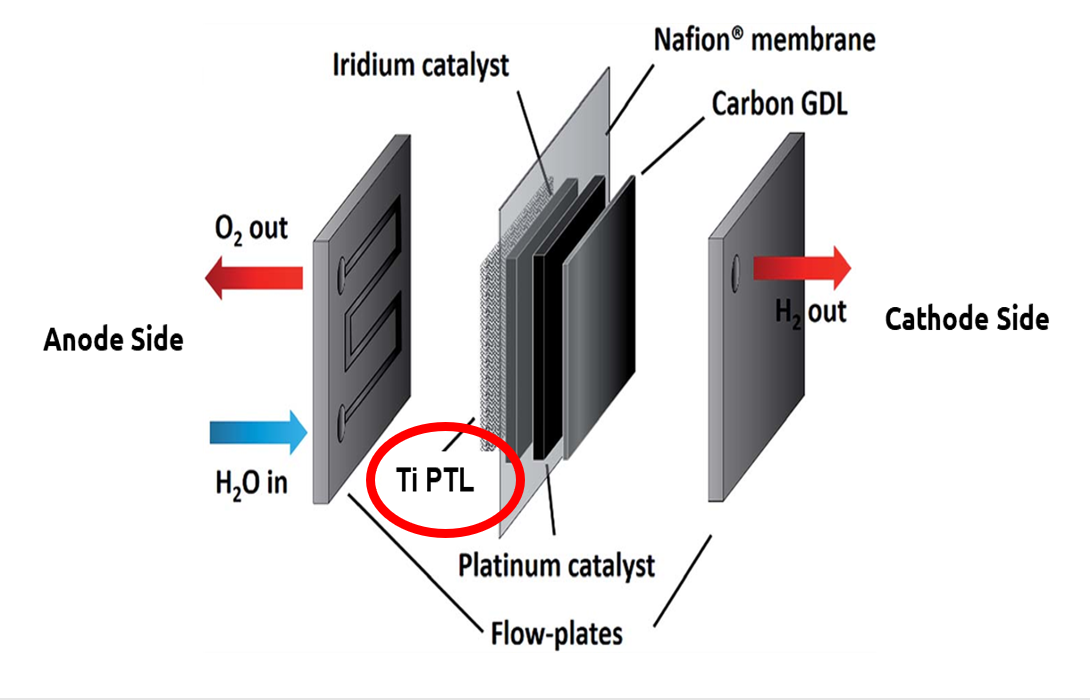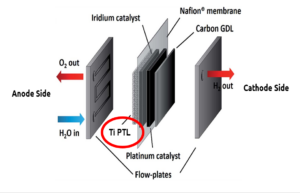The PROTIS project [Thin protective layers of titanium suboxide for the porous transport layers of PEM electrolysers] is one of the projects that will enable LEMTA to participate in accelerating the deployment of hydrogen, the keystone of the decarbonisation of industry.
Resulting from the ANR’s call for International Collaborative Research Projects (PRCI) between France and Switzerland, the project is coordinated by the Institut de la Corrosion and brings together the skills of the Swiss Federal Laboratories for Materials Testing and Research (EMPA) and those of LEMTA’s ‘Hydrogen and Electrochemical Systems’ team: three renowned players whose aim is to reduce the cost of polymer membrane electrolysers.
There are still limits to the scale-up of this technology, notably due to the large quantity of noble metal electro-catalysts (platinum and iridium) and the use of titanium components. While reducing the iridium content is the objective of the MATHYLDE project (also supported by LEMTA), PROTIS will aim to replace titanium components with stainless steel, which is much cheaper!
Nevertheless, the use of stainless steel components in electrolysers requires functional protective coatings to improve performance. PROTIS will study the protective properties of thin layers of titanium suboxide and their microstructure on stainless steel substrates, drawing on EMPA’s expertise in materials science and the Corrosion Institute’s in-depth knowledge of corrosion.
On the basis of this understanding of the process, LEMTA will use materials supplied by the partners and carry out in-operando characterisations to assess the influence of microstructural properties on the performance and durability of polymer membrane electrolysers. Supervised by Gaël Maranzana and Feina Xu, doctoral student Kaoutar Lahlou Nabil will be responsible for taking this work forward.
The successful completion of the PROTIS project will remove one of the main technological obstacles to the deployment of hydrogen technologies, enabling a considerable reduction in capital expenditure.
This 42-month (2023-2026) multidisciplinary project is funded by the French National Research Agency and the Swiss National Science Foundation.
Total funding: 828 k€, including 271 k€ for LEMTA

